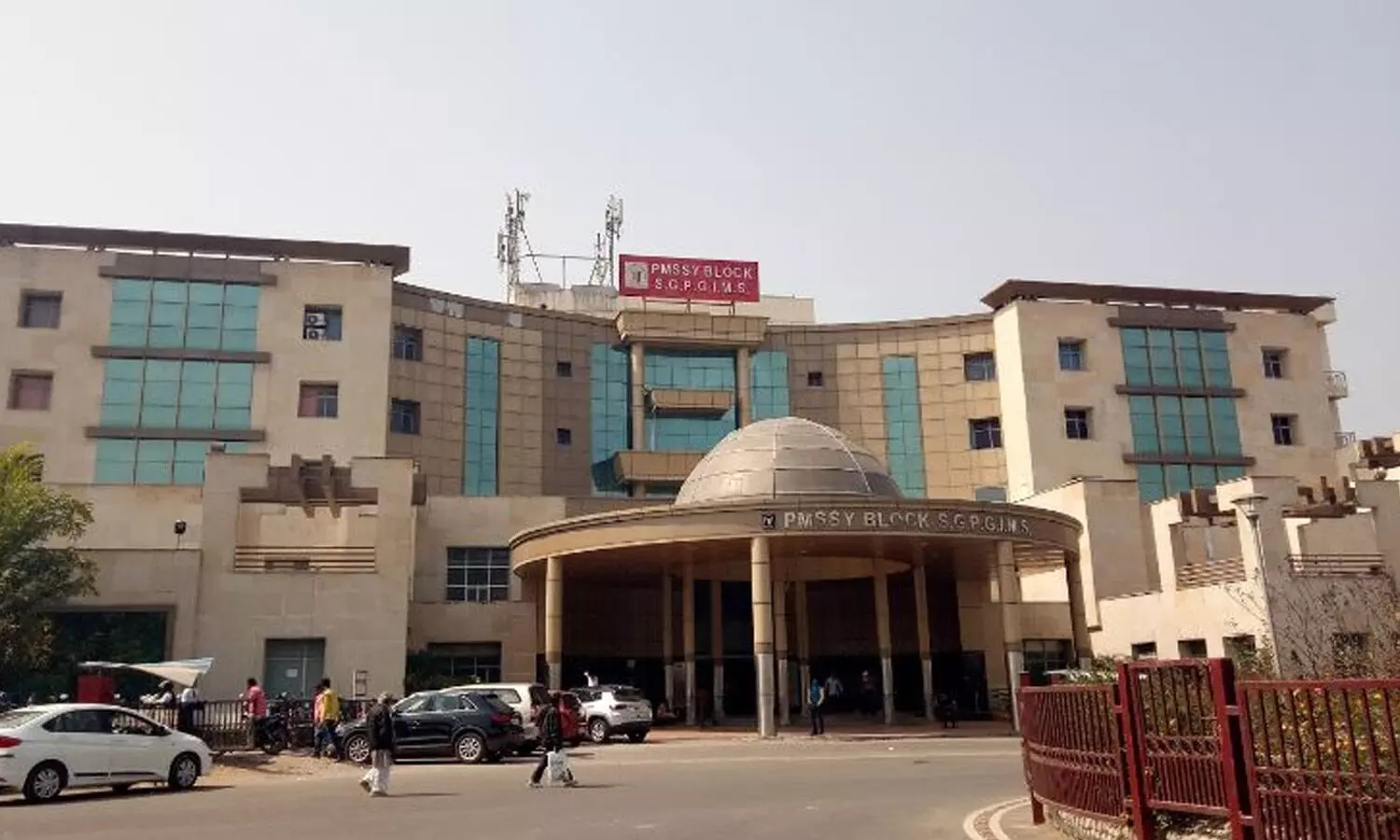TRENDING TAGS :
SGPGIMS, Lucknow performed the swap renal transplant for the first time in UP
In swap renal transplantation, the donor kidney of one pair is exchanged with another one, to make it suitable for successful transplantation.
SGPGI, PC: Social Media
Lucknow: For the first time in the state of Uttar Pradesh, Department of Nephrology along with the department of Urology and renal transplantation, SGPGIMS, Lucknow have performed the swap renal transplant on 31st August 2021 which is also known as paired kidney exchange.
In swap renal transplantation, the donor kidney of one pair is exchanged with another one, to make it suitable for successful transplantation. We have done a 2-way swap transplant between two incompatible pairs, with two live donor transplants simultaneously. The swap donation was made legally permissible with Tissue and Human Organ Transplantation act, amendment and rule of 2014.
Swap Kidney Transplant in SGPGIMS:
Mrs. C, 53 years, resident of Azamgarh, was diagnosed withend stage renal disease, when she contacted initially to Prof Narayan Prasad in OPD in 2018. She has been started on dialysis since then. Her husband Mr. J,54 years came forward to donate one kidney to his wife. Dr Prasad performed detailed immunological matching. However, on immunological matching, she had multiple high strength antibodies (Donor specific antibodies, DSA) against her husband's kidney.
The crossmatch test turned out to be positive, a situation which is a contraindication for transplantation and renal transplantation if performed will lead to severe rejection or in other words the kidney of the husband would not be accepted by the body of the wife. She did not have any other alternate kidney donors in the family. Her husband kidney was not suitable for her.
Paired kidney exchange:
Another ESRD, Mr R 47 years old patient, resident of Lucknow, was on dialysis since 2019. His wife Mrs. S, 40 years, willingly came forward as kidney donor. Unfortunately, he also had very high strength DSA against her wife's kidney on immunological matching. He had a strong crossmatch positive report and hence the donor was not suitable to donate kidney to her husband. These matchings are done very at few public sector institutes, and this single antigen bead test is done in renal lab of SGPGIMS.
The nephrology team thought of alternative ways to get the transplantation and discussed with the urology team and a decision to go ahead with swap renal transplantation was taken. Another crossmatch test after swapping the above two donors (Mrs. C with Mrs. S, and Mr. R with Mr. J) was performed which came as negative and there were no donor specific antibodies after swapping.
This was explained to both the pairs, and they give their full consent for the same. Other parameters were also compatible and hence permission was obtained for swap transplant from Hospital Based Authorization committee. Hospital based authorization committee acted very positively and permitted for this swap transplantation as per human Organ Transplant act. The Transplant surgery was successfully performed under the leadership of Prof Aneesh Srivastava who is the professor of Transplant surgery and Head of the department of Urology and renal Transplantation.
He was assisted by the team consisting of Dr. Ansari, Dr. Uday Pratap Singh and Dr. Sanjay Sureka .The transplant surgery for both the pairs was executed simultaneously by team of Prof Aneesh Srivastava, backed up by a team of anesthetists led by Prof. Anil Agarwal. Prof. Sanjay Dhiraj, Dr. Divya Srivastava and Dr. Rafat Shamim were part of the Anaesthesia team. The other faculties of the nephrology department consisting of Prof. Anupma Kaul, Dr. Dharmendra Bhadauria, Dr. Manas Patel, Dr. Ravi Kushwaha, Dr. Monika Yachha & Dr. Manas Behera appreciated this as a big leap in the success of living donor transplant program at the institute. The team of nephrology, urology, and anesthesia, acted coherently to make it a successful transplantation to provide future healthy life to these end stage renal disease patients.
The kidney paired donation has several advantages. It is cost effective, does not require any desensitization techniques and the recipients have to take much lesser immunosuppression,. The waiting period is significantly reduced with better graft and patient survival rates. The success rate of this better matched transplantation is always better than transplantation done after desensitization. Prof R K Dhiman, the director of the institute a well-known great academician and innovator, appreciated, and provided all the support for the double.
Stay tuned with the newstrack to get fastest updates. Click @englishnewstrack to follow us on Facebook and @newstrackmedia to follow on Twitter.



